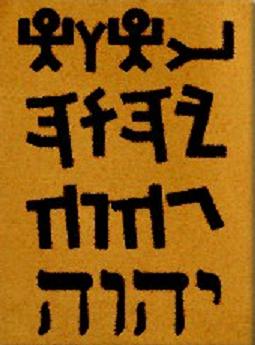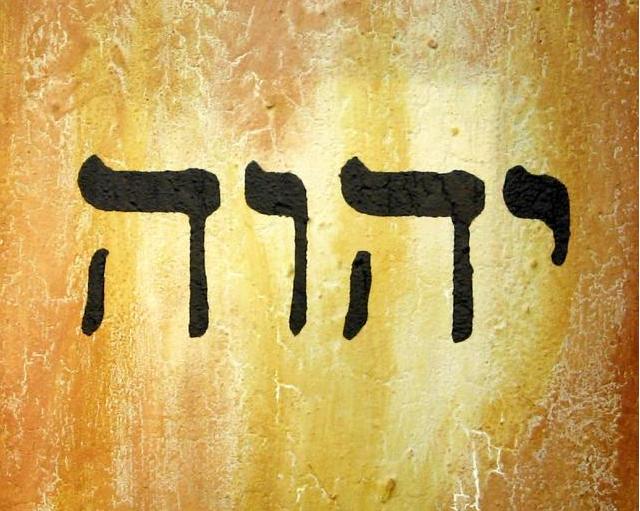The Divine Name of the Almighty
Background
In the Hebrew language and Hebraic thought, names are not just sounds to address someone. Names have meaning, and tell us about the thing or person it's describing. What we see in English as titles for the Almighty, such as Elohim (God), El Shaddai (God Almighty), etc. could, and are in fact, names for our Heavenly Father. We read from the Torah,
"And I appeared unto Abraham, unto Isaac, and unto Jacob, by the name of El Shaddai, (Exodus 6:3a)
So El Shaddai is in fact a name which describes our Heavenly Father as being all powerful, all mighty, etc. Going back to Ancient Hebrew pictographic letters, we can see that each character in these names/titles point to Him being strong and mighty, a very fitting description! These names/titles however, could also be used to describe other things, not just our Almighty Creator. On top of that, they were perverted to an extent in the sense that they were also used for false deities. Our Father in heaven therefore declared a name which is set-apart from all other names. We read about this being the name above all names in Philippians 2. Scripture records the revelation of this name ot Moshe in the Torah,
"Then Moshe said to Elohim, "Behold, I am going to the sons of Yisrael, and I will say to them, 'The Elohim of your fathers has sent me to you.' Now they may say to me, 'What is His name?' What shall I say to them?"
Elohim said to Moshe, "EHYEH ASHER EHYEH"; and He said, "Thus you shall say to the sons of Yisrael, 'EHYEH has sent me to you.'"
Elohim, furthermore, said to Moshe, "Thus you shall say to the sons of Yisrael, 'YHWH, the Elohim of your fathers, the Elohim of Awraham, the Elohim of Yitzchak, and the Elohim of Ya'akov, has sent me to you ' This is My name forever, and this is My memorial-name to all generations." (Exodus 3:13-15, emphasis added)
We can see that Elohim has described Himself as "Ehyeh Asher Ehyeh". This statement can actually be rendered three different ways, each meaning "I was who I was", "I am that I am", and "I will be what I will be" respectively. Most translations render the second meaning in the text. Notice though that this is how the Almighty refers to Himself. So if He says "I AM", we in addressing Him to others would have to say "HE IS". This is exactly how Elohim tells Moshe to address Him when speaking to the Israelites immediately after when he says "further you will say to the Yisraelites that..."
The Divine Name
This form of the Almighty's name is made up of four Hebrew characters - Yod, Heh, Waw (or Vav in Modern Hebrew) Heh. From Modern hebrew this is usually translitereated into the english charachers Y-H-W-H. It is replaced by the English title substitution "the LORD" in most English translations of the Scriptures. Below you can see it written in Ancient Hebrew (pictographic, used around the time of Awraham), Paleo-Hebrew (identicle to the Phoenician alphabet, used around the time of Moshe) Early Block Script Hebrew (influenced by Aramaic, used around and after the Babylonian captivity) and Modern Hebrew (used today),

In the Hebrew Scriptures it is used approximately 7000 times to refer to our Father in heaven, and never is it ever attributed to anyone else. In Exodus 3:15 YHWH says that this is His name FOREVER, for ALL generations. We read further in Isaiah,
"I am YHWH, that is My name; I will not give My honor to another, nor My praise to graven images." (Isaiah 42:8, emphasis added)
Certainly there is a special distinction in regards to this name which puts it above all other names, and the Scriptures do in fact refer to it as the "name above all names".
How and why did the name come to be used less?
Text Here
What does YHWH mean?
| Ending |
Meaning |
| hawah/havah |
who was |
| howeh/hoveh |
who is |
| haweh/haveh |
who will be |
| huah |
has become |
| howah/hovah |
mischief |
| haw-wah |
who is ever |
Text Here
How to pronounce YHWH
Text Here

